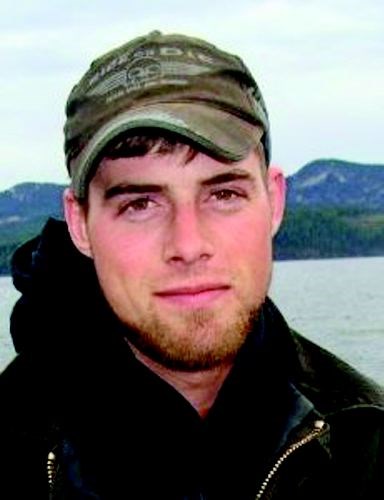Whether a Nakazdli woman helped cover up a murder drew conflicting views Tuesday from Crown and defence counsel during a hearing before a B.C. Supreme Court Justice.
Teresa Marie Charlie, 24, has pleaded not guilty to one count each of accessory after fact to murder and attempt to obstruct justice in the January 2012 death of the Fribjon Bjornson, and confirmed those pleas at the start of the hearing.
Wesley Dennis Duncan, 30, and Jesse Darren Bird, 34, pleaded guilty in late August to second degree murder and await sentencing. The case against James David Charlie, 26, who faces one count each of murder and interference with a dead body, remains before the court.
Much of Crown prosecution's case is centred on Charlie's statements to undercover officers during a so-called Mr. Big sting, in which police pose as high-level criminals in an effort to gain the suspect's trust with the goal of coaxing out a confession.
It was submitted that those statements combined with those she gave after her arrest mesh with the evidence found at the scene of Bjornson's death and with testimony from a range of witnesses heard during a voir dire.
The court heard Teresa Charlie, Duncan, her boyfriend, James Charlie, her brother, and Bird were living in the home, owned by Robert Antoine at 3 Lower Rd. on the Nak’azdli reserve, just south of Fort St. James.
According to the scenario put forth by Crown prosecutor Richard Pearly, Bjornson had shown up at the home during the early morning hours of Jan. 11 to buy powdered cocaine after the 28-year-old father of two cashed a paycheque for about $2,500.
Teresa Charlie had gone out to sell rock cocaine, but returned in time to see the other three as well as a fourth man, whose identity is not clear, beating up Bjornson in the basement. On the ground, surrounded and bloodied beyond recognition, Bjornson cried out "please" while James Charlie held his foot to the victim's head and jumped on him, the court was told.
Teresa Charlie left after reloading with more rock and when she returned, Duncan showed her a now dead Bjornson, lying beneath a heap of clothes, according to Crown's scenario. Teresa Charlie closed Bjornson's eyes and Duncan told her he had messed up and asked her to lie about what happened, according to the Crown's version.
The Crown also asserted Teresa Charlie helped with cleaning up the crime scene the next morning, methodically burning Bjornson's clothes and shoes as well as his cellphone, identification and wallet – after taking out the cash.
Everything they used to wipe up the blood on the floor as well as the drywall on which blood had spattered was also burned, the Crown also heard.
Bjornson's body, meanwhile, was disposed of. According to a statement of agreed facts read into the record last week, Bjornson was strangled to death and a few weeks later, his severed head was found in a comforter in the basement of a neighbouring home. In October 2015, Bird led undercover officers operating the Mr. Big sting to a log jam on an island in the Necoslie River where the rest of his body was disposed, according to the statement.
Interviewed by police about a month after Bjornson's death, Charlie told an officer that contrary to stories she heard, she and Duncan were never at the scene and they had moved to the Binche reserve, about 25 kilometres northwest of Fort St. James on Jan. 8, her birthday.
In a rebuttal, defence counsel Rob Climie argued the story Teresa Charlie told the undercover officers was without merit and given at Bird's insistence to protect her from being regarded as a "rat" by supposedly high-ranking criminals.
He submitted Bird advised her to lie to the undercover officers during a brief walk from where they met to a car where the officers were waiting for her, and noted she did not mention any of the five "holdbacks" or pieces of undisclosed information related to the death.
While investigators later found blood in the basement with the help of a dye, there was no evidence of the floor being wiped other than a trail left when Bjornson's body was dragged across the basement to a window, the court was told.
And while Charlie did repeat that she helped with the clean up in a post-arrest interview, Climie contended she did so only after hours of denying involvement and out of apparent frustration.
"She asked, 'well, what do you want to hear?'" Climie said.
As for her statement to police a few weeks after the murder, Climie said police did not believe her and it made no difference to the way they conducted the investigation.
"It certainly made no difference whatsoever," Climie said.
The maximum sentence for accessory after fact to murder is life while the maximum for attempting to obstruct justice is 10 years.
B.C. Supreme Court Justice Ron Tindale will issue his decision on sentencing on Dec. 5.



